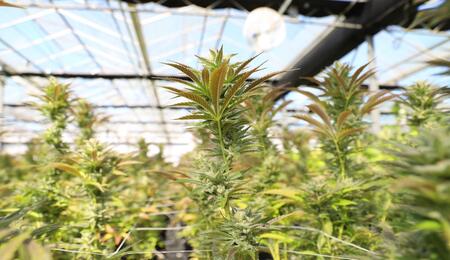Cannabis Banking Reform Gets Nothing in $900 Billion Coronavirus Relief Package

Zero, zilch, nada. If this made someone happy, it's, of course, Senate Majority Leader Mitch McConnel. Better luck next time with cannabis banking provisions.
Cannabis banking reform was excluded at the end of December in the U.S. Congress when an almost 6,000-page document detailed the initial U.S. House relief measure's particularities. A key cannabis provision, originally part of the draft, sought to freshen up cannabis businesses under the Secure and Fair Enforcement Banking (SAFE) Act. If approved, the coronavirus relief bill would have included provisions to help boost cannabis sales, including:
- A $300-per-week jobless benefit supplement through mid-March
- $600 stimulus checks to Americans who’ve earned less than $75,000 in the preceding tax year
- $600 per child in those families where applicable
The relief would have come in particularly handy to small cannabis businesses who’re navigating through tough economic times due to the pandemic. While this time the relief package opted out to grant finances access to legal cannabis businesses, there’s still hope cannabis banking reform will be included if there’s a push for additional COVID-19 stimulus after President-elect Joe Biden assumes office in January, said David Mangone, director of policy for The Liason Group. This Washington DC-based firm lobbies for the National Cannabis Roundtable. Senate Majority Leader Mitch McConnel has so far openly opposed any form of cannabis reform. McConnel previously was displeased about the SAFE Banking Act being part of the House coronavirus relief bill. He reportedly slammed the first House version of the relief bill for overusing the word “cannabis” 68 times - “more times than the word ‘job’ and four times as many as the word ‘hire.’” Expectedly, McConnel now cheered on the fact that the House-passed cannabis banking provisions were omitted from the final version of the stimulus bill. "Speaker Pelosi's partisan bill included... provisions ensuring cannabis businesses can work with federally backed banks and insures," he said in a press release statement. In a landmark move last year, the U.S. House lawmakers approved with an overwhelming majority the legislation that would pave the way for financial institutions and insurance companies to open up to state-legal cannabis businesses without fear of federal punishment. At the time, 91 Republican votes added to those 230 of Democrats for the measure known as the SAFE Banking Act, an act that showcased strong bipartisan support. The bill appeared as the first piece of cannabis legislation passed by either the full House or Senate, winning over a two-thirds majority of those present and voting. It gave hope to state-legal cannabis businesses that have for years struggled to gain access to basic financial services and products, hindering their operations and growth and instilling uncertainty in what has become a multi-billion dollar industry. When approved, cannabis banking reform would effectively enable financial institutions to provide ordinary banking services to state-legal cannabis businesses without fear of federal reprisal. A new U.S. Senate panel chair will largely boost the chances for initiating such a reform. As you might imagine, that depends on who gets to control the Senate. With more Democrat-allotted seats, the prospects are more plausible. For now, cannabis industry officials were comforted that the Senate banking committee's likely incoming chair, Pennsylvania Republican Pat Toomey, nodded to legislation that would bridge cannabis businesses with traditional financial institutions. On one occasion, Toomey has told Politico that he was “sympathetic to the idea that people who are involved in the cannabis industry - in an entirely legal fashion, in the state in which they operate - ought to be able to have ordinary banking services.” “That’s my standing point, and then there’s a lot of details to work out, but I am open to that,” Toomey said.



